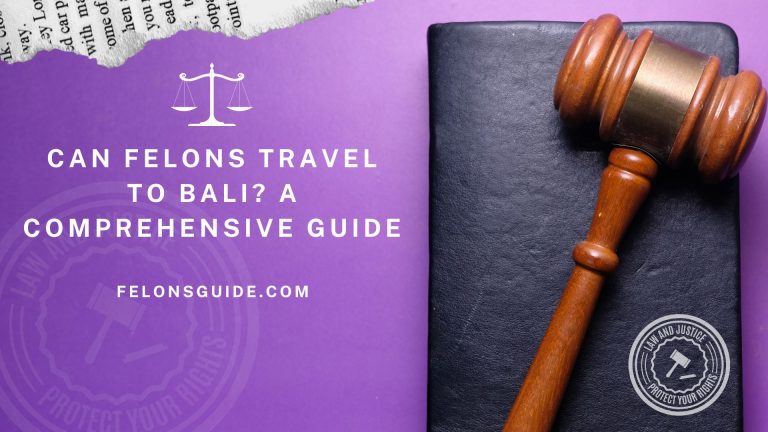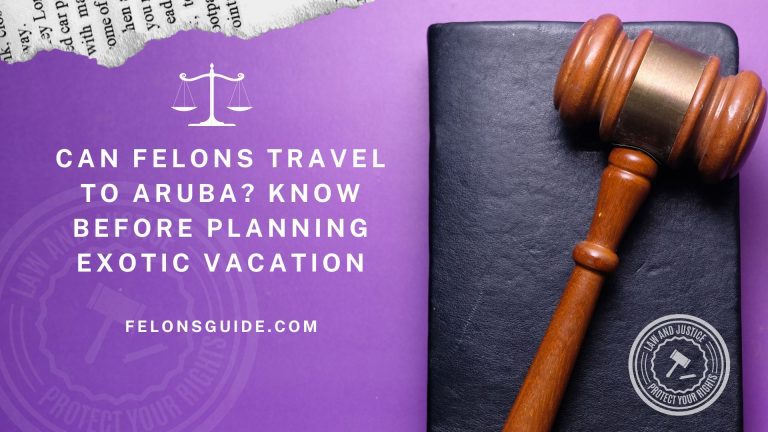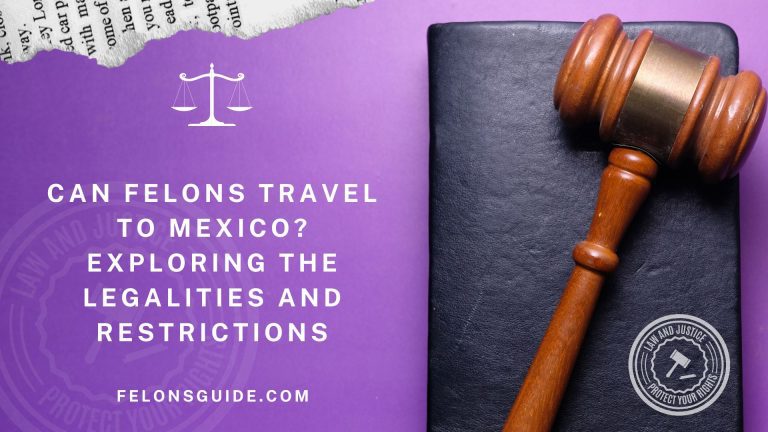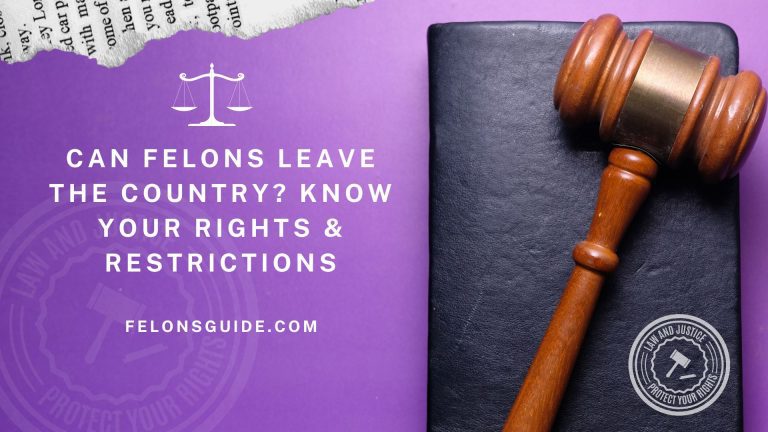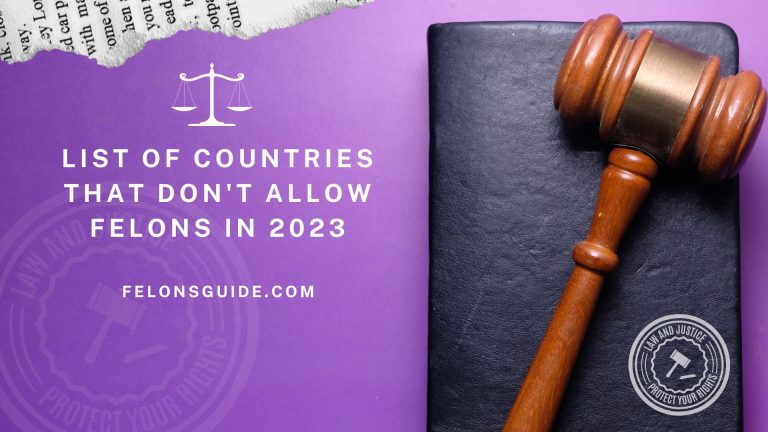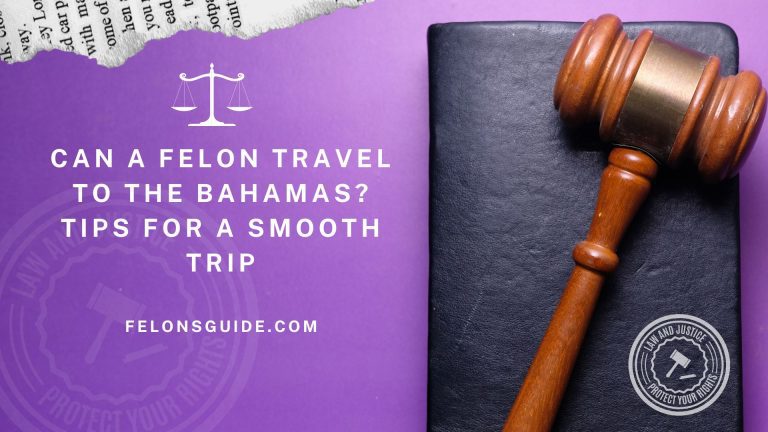Can a Felon Travel To Cuba? Explore the Travel Guidelines
As a felon, it can be difficult to know your rights when it comes to travel restrictions. One question that many felons have is whether they can travel to Cuba. This is a complex issue that involves both US and Cuban law. In this article, we will explore the answer to this question and provide you with the information you need to know about traveling to Cuba as a felon.
Can a Felon Travel To Cuba?
Cuba is a popular travel destination for Americans due to its rich history and unique culture. However, US citizens are subject to travel restrictions to Cuba due to political tensions between the two countries. Additionally, felons may face additional restrictions when it comes to international travel. In this article, we will explore whether felons can travel to Cuba and what restrictions they may face.
Also Read: Can a Felon Become a Sovereign Citizen?
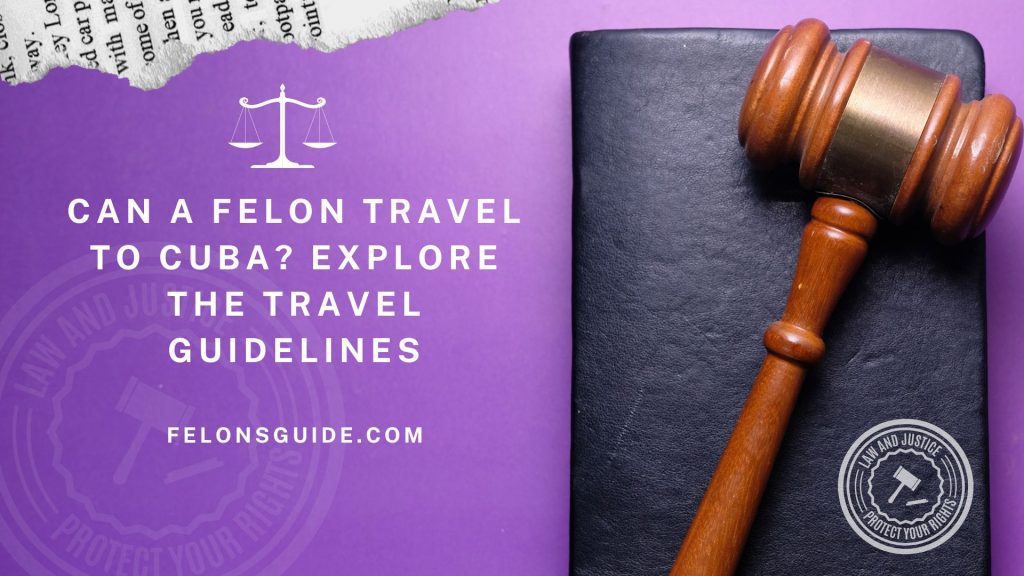
US Travel Restrictions to Cuba
Since 1960, the US has had an embargo on Cuba, which limits travel and trade between the two countries. This embargo was partially lifted in 2015, allowing for some travel to Cuba. However, in 2019, the Trump administration reinstated travel restrictions to Cuba, limiting travel to the country for US citizens.
Under these restrictions, US citizens are prohibited from traveling to Cuba for tourism purposes. Instead, they must fall into one of 12 categories of authorized travel, which include family visits, journalistic activities, and educational activities. These restrictions apply to all US citizens, including felons.
Cuban Travel Restrictions for Felons
While the US has restrictions on travel to Cuba, Cuba also has its own restrictions on who can enter the country. According to Cuban law, felons may be prohibited from entering the country.
Cuba has not published an official list of crimes that would prohibit entry into the country. However, some reports suggest that crimes related to drug trafficking, terrorism, and political offenses may result in a denial of entry.
Exceptions to Cuban Travel Restrictions
While felons may face restrictions when traveling to Cuba, there are some exceptions that may allow them to travel to the country. If a felon falls into one of the 12 categories of authorized travel to Cuba, they may be able to obtain a travel authorization.
Additionally, if a felon has had their rights restored, they may be able to travel to Cuba. In some cases, felons may be able to have their rights restored through a pardon or by completing their sentence and meeting certain requirements.
How to Apply for a Travel Authorization
If a felon falls into one of the 12 categories of authorized travel to Cuba, they can apply for travel authorization through the US Department of the Treasury’s Office of Foreign Assets Control (OFAC). The application process requires the submission of certain documents and may take several weeks to process.
Consequences of Traveling to Cuba Illegally
Traveling to Cuba illegally can result in serious consequences, including fines and imprisonment. Felons who travel to Cuba without authorization may also face additional legal consequences upon their return to the US.
Conclusion
In conclusion, felons may face restrictions when it comes to traveling to Cuba. Both the US and Cuba have restrictions on travel to the country, and felons may be subject to additional restrictions under Cuban law. However, there are exceptions that may allow felons to travel to Cuba if they fall into one of the 12 categories of authorized travel or have had their rights restored.
